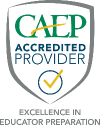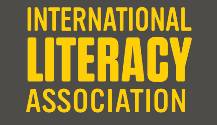What you will study
This Literacy Education degree is designed for professional educators, such as certified
elementary, middle school and secondary teachers. You’ll master theoretical, historical
and evidence-based foundations of literacy and language. You’ll not only learn to
select and administer assessment tools to screen and diagnose and measure student
literacy achievement, development and instruction, you’ll also learn how to create
an environment that fosters reading and writing achievement.
Graduates of our program will acquire the skills to model, create and engage students
in literacy practices that develop awareness, understanding, respect and value of
differences in our society.
Our program is based on the International Literacy Association (ILA) Standards for
Reading Professionals. Key required UCM coursework includes:
- Methods and Materials for Literacy Enhancement
- Assessment of Literacy Development
- Advanced Language Arts Methods: Culture and Communication
Excellence in Literacy Education
- The International Literacy Association has awarded UCM’s program National Recognition,
the “gold standard” in literacy education.
- Nationally Accredited by the Council for the Accreditation of Educator Preparation.
- Top 15%: Most Focused Colleges for Education (College Factual, 2022)
- Top 6%: Most Popular Colleges for Education (College Factual, 2022)
Unique learning opportunities in literacy education
Regardless of where you’re joining us for the UCM master’s in Literacy Education,
you’ll still have direct opportunities to put your learning into action:
- Become an effective literacy teacher: In addition to research, pedagogy, methodologies and history, our graduate students
take The Literacy Coach, a course designed to prepare you to become an effective mentor
and partner in reading and writing.
- Real-world experiences: Complete two required clinical practicum courses in your classroom setting: Practicum in Literacy Assessment and Practicum in Instructional Techniques for Literacy Enhancement. These courses will be among the most demanding and rewarding of your time at UCM.
You’ll complete supervised and integrated intervention work with students, supported
by experienced colleagues and school personnel. This experience will ensure that you’ll
be prepared to succeed in your career as an expert and mentor to students from all
walks of life.
What can you do with a degree in Literacy Education from UCM?
Graduate prepared for a number of educational positions, including literacy coach,
reading teacher and reading specialist.
However, not all graduates seek to work directly with students. Some educators add
this credential to their skill set to transition into an administrative or supervisory
role, either at a school or a related nonprofit organization.
Alternatively, if you seek a career in literacy research, your core graduate program
coursework will provide you with the educational methods and experience you need to
apply for doctoral programs.
Jobs in literacy education
Use our interactive tool below to explore all of the possibilities with a master’s
in Literacy Education from UCM.
Financial assistance options for your MSE in Literacy Education
As a public institution of higher education, the University of Central Missouri is
dedicated to providing you with an affordable, high-quality education. In addition
to offering some of the lowest tuition available in the state of Missouri, we provide
numerous opportunities and resources for graduate students.
We’re here to help you understand your financing options, including scholarships, grants, graduate assistantships, awards and student loans.
Furthermore, we’re proud to offer funding opportunities reserved specifically for
Literacy Education students:
- Department of Educational Foundations and Literacy Scholarship
- Kathleen Ranson Scholarship in Reading
- Kathryn and Richard Carr Graduate Scholarship in Reading
Find out more about program-specific awards by using the UCM Scholarship Finder.
Meet Bailey G.
MSE Literacy Education ’21
“This is a clear, well-paced master’s program that is realistic for full-time educators
to complete. I have become a better teacher not only in the area of literacy, but
in all subjects due to the careful attention to detail I was required to take when
creating lessons for this program. I also appreciated that diversity in this program
was not only celebrated, but accentuated and valued.”
Flexible Coursework
Online instruction for a better balance
We know you have a variety of responsibilities in addition to graduate school. An
online degree can help you manage your responsibilities and goals. For example, UCM’s
blend of synchronous and asynchronous courses ensures that your academic experience
is both flexible and diverse.
A Tradition of Teaching
Teaching comes first
UCM has a long history of training educators since our founding over 150 years ago.
Above all else, our faculty are experienced teachers and reading coaches — just like
you. They’ve spent many years teaching diverse learners and supporting struggling
students while mastering the latest research methods and data — and they’re motivated
to mentor the next generation of literacy experts.
Dedicated Faculty and Staff
Individualized support so you can succeed
A rigorous master’s in literacy education program requires support, guidance and assistance
for students. That’s why you’ll be assigned a dedicated academic advisor and enjoy
a low 7:1 student-to-faculty ratio. Our faculty boast many years of teaching experience
and regularly present and publish internationally.
leftright
Flexible Course Formats
You will have access to highly-qualified faculty who are leaders in the field of literacy
education. Personal instruction and advising from one of these faculty members helps
you be successful in the classroom and in the field. Courses are offered in flexible
formats (online and/or hybrid) to work around your busy schedule.
Depending on your personal schedule, it usually takes anywhere from 2 to 4 years to
complete the graduate hours required for the degree. We suggest that you take your
time with graduate courses as the workload tends to be higher than undergraduate classes.
Student Learning Outcomes
You will use the knowledge and skills obtained in the program to:
- Demonstrate expertise in theoretical and evidence-based foundations of reading and
writing processes and instruction.
- Foster the use of instructional approaches, materials, and an integrated, comprehensive,
balanced curriculum to support learning in reading and writing.
- Be responsible for managing and monitoring a variety of assessment tools and practices
to plan and evaluate effective reading and writing instruction.
- Model, create, and engage students in literacy practices that develop awareness, understanding,
respect, and valuing of differences in our society.
- Create a literate environment that fosters reading and writing by integrating foundational
knowledge, instructional practices, approaches and methods, curriculum materials,
and appropriate use of assessments.
- Demonstrate a commitment to professional development as a career-long effort and responsibility.
Admission Requirements
MSE classes are offered for the Fall, Spring, and Summer semesters. You don't need
to wait until Fall to start, you can begin your program in Spring or Summer.
To be accepted into the degree program, you must:
- Have a bachelor’s degree from a regionally accredited or National Council for Accreditation
of Teacher Education institution with a minimum undergraduate GPA of 2.5
- Submit proof of teacher certification or provide a professional endorsement from any
of the 50 states or territories
- Submit a copy of a recent summative teaching evaluation (i.e., a PBTE or similar evaluation
form) or a letter from a school superintendent, principal, or professor attesting
to teaching abilities and graduate school potential
- Submit an application for admission (including submission of official undergraduate
transcripts)
For more information on Graduate Admissions, please visit the Graduate School Admissions page. All application materials should be received a minimum of three weeks prior
to the first date of the semester in which you seek to enroll.
After you are accepted, you will be assigned a graduate advisor who will assist you
in developing a Program of Study and selecting courses to help you finish your program
in a way that best meets your needs.


















